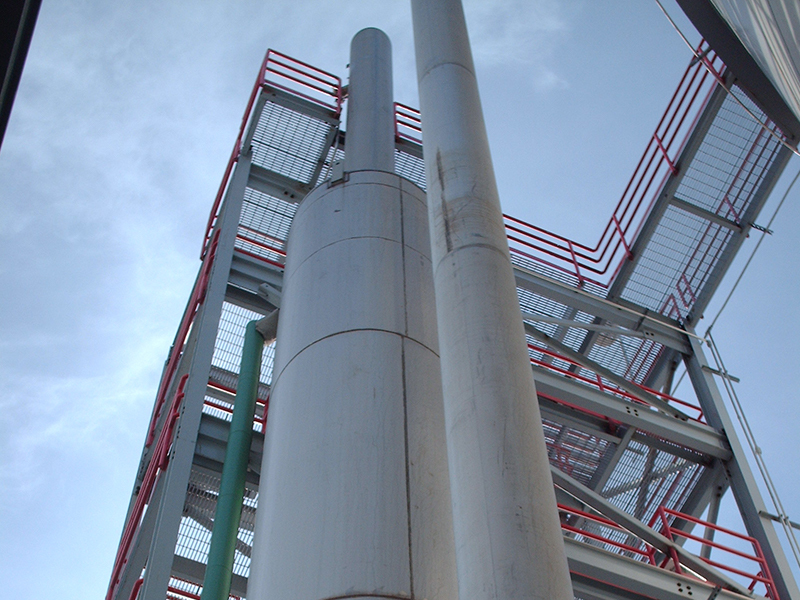Let's start with the scrubber.
Aldehydes, primarily acetaldehyde, in fermentation gas are considered to be “hazardous air pollutants (HAPs)” by EPA. Aldehyde control is often based on sulfites, which react with the aldehydes, making them “scrubbable”. If you use more than required sulfur dioxide (SO2) gas can freely pass through the final stages of distillation and dehydration and manifest in the tank farm. U.S. Water Ethanol Process Technologies (EPT) innovated a more efficient aldehyde scrubbing chemistry that uses a catalyzed yeast-friendly system to knock down the HAPs while avoiding downstream sulfate issues.
So much sulfuric acid.
Historically, low beer feed pH was required to prevent rapid fouling of beer/mash heat exchangers and beer columns. Many plants purchased several loads of sulfuric acid each week to pump into the beer. As a result, WDG and DDGS co-product sulfur levels became unacceptably high and final product sulfate climbed. U.S. Water EPT introduced our unique pHytOUT® technology to irreversibly destroy the root cause of the deposits, reducing sulfuric acid needs by 60 to 80 percent. Not stopping there, we developed a family of evaporator deposit inhibitors that not only obviate the need for evaporator acid “shots”, but improve evaporator performance and uptime.
Gotta clean!
In the past, clean-in-place systems required truckloads of dusty sulfamic acid – expensive, difficult to handle and not Generally Recognized As Safe (GRAS). U.S. Water created a sulfur-free ProClean family of cleaning systems that avoid all those problems and reduce the cost and frequency of caustic cleanings, too.
That little tank out in the tankfarm – Corrosion Inhibitor.
All fuel ethanol must be treated with a corrosion inhibitor prior to sale. The product also must keep the pHe of the denatured product in line without compromising the product quality. The sulfur-free U.S. Water's CorrPro products accomplish both, delivering necessary buffering power at a minimum dosage.
The last line of defense – the Ethanol Final Filter.
Even with the current 4 ppm inorganic sulfate limit, issues in compliance can be challenging and unpredictable. Noncompliance is an expensive option, as buyer rejection of denatured fuel ethanol can cost millions of dollars to resolve; dilution by blending is time-consuming and lowers production rates. A proven risk management tool is the U.S. Water Ethanol Final Filter. This leased system is maintained by U.S. Water after installation, and can be used as desired, either continuously to provide security of compliance or as needed during upsets. Place it in plant buildings, the tankfarm or at loadout. Since the system was commercialized over two years ago, we have recovered over 100 million gallons of ethanol while managing inorganic sulfate levels as high as 50 ppm and returning all the product back to the plants in-spec.
U.S. Water’s Unique Sulfur Control Solutions

